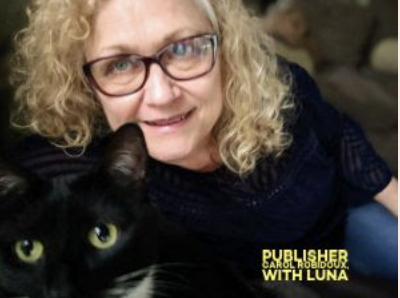Once in a lifetime: Talking Heads’ Jerry Harrison ready to rock Tupelo Music Hall on Aug. 2
Ever since last year, Jerry Harrison, guitarist Adrian Belew – who was one of the many session players for “Remain in Light” – and a powerhouse band have been touring in celebration of the album. On August 2, they’re going to be making a stop at the Tupelo Music Hall in Derry with Brooklyn funk act
DERRY, NH – New wave icons Talking Heads are one of the most important bands of the last half-century and they’re considered to be pioneers of the specific style. With this being said, there’s a case to be made that their fourth studio album, “Remain in Light,” is their most pivotal due to the quartet of vocalist and guitarist David Byrne, multi-instrumentalist Jerry Harrison, bassist Tina Weymouth and drummer Chris Frantz drawing influence from African polyrhythms, electronic-driven funk and looping techniques. This is evident in the hit “Once in a Lifetime” along with other tracks, such as “Crosseyed and Painless,” and “Born Under Punches (The Beat Goes On).”
Ever since last year, Harrison, guitarist Adrian Belew – who was one of the many session players for “Remain in Light” – and a powerhouse band have been touring in celebration of the album. On August 2, they’re going to be making a stop at the Tupelo Music Hall in Derry with Brooklyn funk act Cool Cool Cool kicking things off at 8 p.m.
I spoke with Harrison recently about how this project got started, working with the acclaimed producer Brian Eno during the making of “Remain in Light,” and having a lot of irons in the fire.
IF YOU GO
Tupelo Music Hall, Aug. 2 – 8 p.m.
10 A Street Derry, NH

Rob Duguay: This tour that you and Adrian Belew have been on is celebrating the seminal 1980 Talking Heads album “Remain in Light,” so how did the idea for this come about? Was this originally supposed to happen back in 2020 before COVID got in the way?
Jerry Harrison: It was supposed to happen in 2020, which would have been the 40th anniversary, but Adrian and I had been talking about this for quite a few years. Specifically about how great the video of Talking Heads playing in Rome in 1980 is, and that was the blueprint that we wanted to take forward. I was working with the band Turkuaz and I realized that I found a way with people who not only love Talking Heads music but they’re a fully formed band and they’re really good. They were playing at the Exit/In in Nashville and Adrian said “I gotta see them”, so we went together and after about 10 minutes he was like “You’re right, this is going to work.” In a way, Adrian and I joined the band.
The great thing about it was that with a band this size, people are sharing hotel rooms or they’re on a bus and they’ve already worked out who wants the bottom bunk, the middle bunk and the upper bunk and who likes this and who likes that. All of the logistics that can get in the way when you try to put together a whole bunch of people were already sort of established. They have been used to having to move their own equipment at times and things like that, so that’s how we made it work.
RD: Along with various members of Turkuaz, you also have Julie Slick on bass and Yohuba Garcia-Torres on percussion, so would you say that rounding out the lineup was seamless due to you and Adrian’s connections to all of these different musicians?
JH: When we began, we were working with the entire band that was Turkuaz, but after the first year, the band had grown tired of the autocratic nature of Dave Brandwein, who was the leader of the band on guitar. They formed a new band with the bass player Taylor [Shell] and Julie plays in Adrian’s power trio while also playing in a “Stop Making Sense” tribute band called Start Making Sense, so she already basically knew all the songs. Yohuba is a friend of Mikey [Carubba], who’s the drummer, so he came in that way. I think it’s been an adventure for Mikey because he had to learn to be a little bit more like Chris Frantz and play a little simpler because he had to leave room for the percussionist.
RD: When it came to originally transitioning the original material to this particular band, how have you and Adrian been able to modify the arrangements while maintaining the essence of the music from “Remain in Light”?
JH: I was involved in doing all of the remixing for all of our records, so I sort of revisited what all of the different parts were. The live album, “The Name of This Band is Talking Heads,” which includes Adrian, is what really everyone listened to in order to figure out which parts they were going to play. It’s been great to add horns because we never had horns, so we could suggest doubling a keyboard part coming in with this part. For example, the horns come do the parts for “I Zimbra” that I used to play on guitar, which enables me to change the parts I play because the horns are doing it. It was me sort of directing the flow and making suggestions, but from doing all of these remixes I had made myself much more familiar with all the parts in “Remain In Light,” which made me a good person to bounce ideas off of because it was fresh in my mind.
For Adrian, it was listening and hearing what he played during that tour back in 1980 and trying to figure out the ways he could get the same tones.
RD: When “Remain in Light” was originally being made, it was Talking Heads’ third album in a row with Brian Eno handling the producing. Did you learn a lot from him during those sessions when it came to being a producer yourself? Did Brian have any effect on how you make records?
JH: Yeah, I think Brian had a big effect on all of us. We had a lot of respect for him and by the time we got to “Remain in Light,” we were quite aware of how to use the studio as an extension of our instruments and how the final sound that was recorded was used. When we did “More Songs About Buildings and Food”, we would sometimes come in, Brian would put an effect on one of our instruments and he just recorded it that way. There’s many people I know who would have been made insane by it, but we were open-minded where we were cool with going in a different direction. We also were learning about delays, flangers and echoes and all the various tools that the studio had.
Recording also started to become a lot of times where you weren’t out in the recording room, you would record sitting in the control room and it was more of a dialogue. Brian had also started to migrate to being someone who was recording us while adding sounds and various effects to the point where he was almost involved as a composer. We wrote “Remain In Light” in the studio and initially Brian wasn’t trying to get involved. In the beginning, he decided that he had done enough records with us and Rhett Davies was going to be the producer, who had been the engineer on “More Songs About Buildings and Food.” Brian then just suddenly showed up, I think he had heard what we were doing, he just thought that it was such a fascinating idea and he felt that he had to be there.
Then Rhett said, “Well, if Brian is going to be here then I’m not going to move down. I’m a producer now, so if it’s Brian then I quit,” so he left. Then we were without an engineer for quite a while and that really didn’t work. Brian was able to get something on tape, but he wasn’t fast and he just wasn’t experienced at that. Dave Jerden then came in, who Brian and David had worked with, and he was great while helping complete the process. Also, at certain times, Brian would want to move so quickly and say “This is just a guide” and Dave would go, “Brian, with you it’s never just a guide, it’s always the final take and I’m not pressing record until I’m ready”, so I learned some things like that.
RD: It sounds like there was a mutual evolution going on with Brian evolving as a producer and Talking Heads evolving as a band simultaneously with it all colliding. After the tour celebrating “Remain in Light” concludes, what are your plans for the rest of the year going into 2025? Do you have any other projects that you’ve been working on?
JH: I’m not exactly sure what I’m going to do. I have a couple companies, I started a biotech company that’s looking for an antidote for snake bites. When I’m not really busy with music, it’s something that I follow really closely, so there’s definitely going to be some time spent on that. We’re at a crucial point in the development where we have trials for the FDA going on, but I’m also inspired to do various other things. Some of them I kind of want to keep a secret in case they don’t happen, but I have some irons in the fire.
Adrian has this tour coming up with Steve Vai, Tony Levin and Danny Carey where they’re going to be playing King Crimson music, so that period of time for me is open to experimentation. We’ll see what happens.

